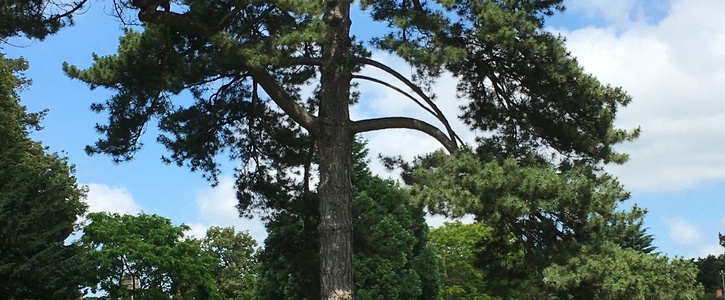To: A Member of Parliament
Wantonly killing trees is Arborcide

We call upon Members of Parliament to promote a private member’s Bill in Parliament, the “Prevention of Arborcide Bill”, in which it would be an offence, punishable by a substantial fine, or a custodial sentence for repeated infractions, to destroy particular trees. These would be a mature tree, or trees , in residential or natural surroundings, in which the trees are historic, rare or an essential part of the social environmental giving benefit to citizens. It should also be applied to young , recent plantations of trees , apparently planted for environmental reasons ,which have been vandalised or neglected by the agency planting them, so that they die. The perpetrators of the offence would be the persons in the agency responsible for ordering the destruction and those carrying out the operation.
There will obviously be exceptions: a tree which has been damaged so much that it is unlikely to survive or a tree which is at the end of its natural life, in a state which is an undoubted danger to the public or to other trees; and plantations which require thinning out. Damage would include infections or infestations. Any intention to destroy a tree in any of these categories, must be announced and given proper public consultation in which views should be sought and recorded.
There will obviously be exceptions: a tree which has been damaged so much that it is unlikely to survive or a tree which is at the end of its natural life, in a state which is an undoubted danger to the public or to other trees; and plantations which require thinning out. Damage would include infections or infestations. Any intention to destroy a tree in any of these categories, must be announced and given proper public consultation in which views should be sought and recorded.
Why is this important?
Our survival on a human friendly planet partly depends on trees.
Trees are vital contributors to global decarbonisation, as in the daytime they suck CO2 out of the air and produce Oxygen and vital sugars, which overcompensates for their respiration at night to reverse the process. And there are billions on the planet. Recently it has been discovered that they are extensively connected underground through the fungal mycelium that can transmit information as chemical products, to form a connected network. Trees have always been important to us for our own purposes , in manufacture and food production, and also in providing a calming and refreshing environment in streets, parks and wild places.
So it is all the more appalling that institutional vandals cut them down. In Sheffield and Plymouth within recently, large areas of mature trees have been destroyed in the city centres. I have visited Plymouth last year and found it very run down and neglected, but the saving feature was Armada Way running down to the centre, a wide boulevard with a central area of urban woodland, grasses and plants left to nature, with large mature trees. The trees have since been destroyed and it is likely the wild area will be filled with rubbish or removed completely for yet more traffic. In both these cities the vandalism was carried out by the Council, against strong popular opinion, and secretively at night to avoid detection. No reasons have been given in either case. This is an appalling misbehaviour of democratic bodies.
Councils do have Tree Protection Orders for certain varieties of trees, to prevent property owners from removing them. They can be over-ruled by planning applications and in public areas they may be ignored by the same councils. As the examples show, councils and their agents seem impervious to the law.
So, there should be legislation by a criminal statute, to ensure the protection of trees, so that trees are given rights appropriate to living beings like animals and persons rather than pieces of property, because their importance seems unappreciated by the uneducated.
Trees are vital contributors to global decarbonisation, as in the daytime they suck CO2 out of the air and produce Oxygen and vital sugars, which overcompensates for their respiration at night to reverse the process. And there are billions on the planet. Recently it has been discovered that they are extensively connected underground through the fungal mycelium that can transmit information as chemical products, to form a connected network. Trees have always been important to us for our own purposes , in manufacture and food production, and also in providing a calming and refreshing environment in streets, parks and wild places.
So it is all the more appalling that institutional vandals cut them down. In Sheffield and Plymouth within recently, large areas of mature trees have been destroyed in the city centres. I have visited Plymouth last year and found it very run down and neglected, but the saving feature was Armada Way running down to the centre, a wide boulevard with a central area of urban woodland, grasses and plants left to nature, with large mature trees. The trees have since been destroyed and it is likely the wild area will be filled with rubbish or removed completely for yet more traffic. In both these cities the vandalism was carried out by the Council, against strong popular opinion, and secretively at night to avoid detection. No reasons have been given in either case. This is an appalling misbehaviour of democratic bodies.
Councils do have Tree Protection Orders for certain varieties of trees, to prevent property owners from removing them. They can be over-ruled by planning applications and in public areas they may be ignored by the same councils. As the examples show, councils and their agents seem impervious to the law.
So, there should be legislation by a criminal statute, to ensure the protection of trees, so that trees are given rights appropriate to living beings like animals and persons rather than pieces of property, because their importance seems unappreciated by the uneducated.

